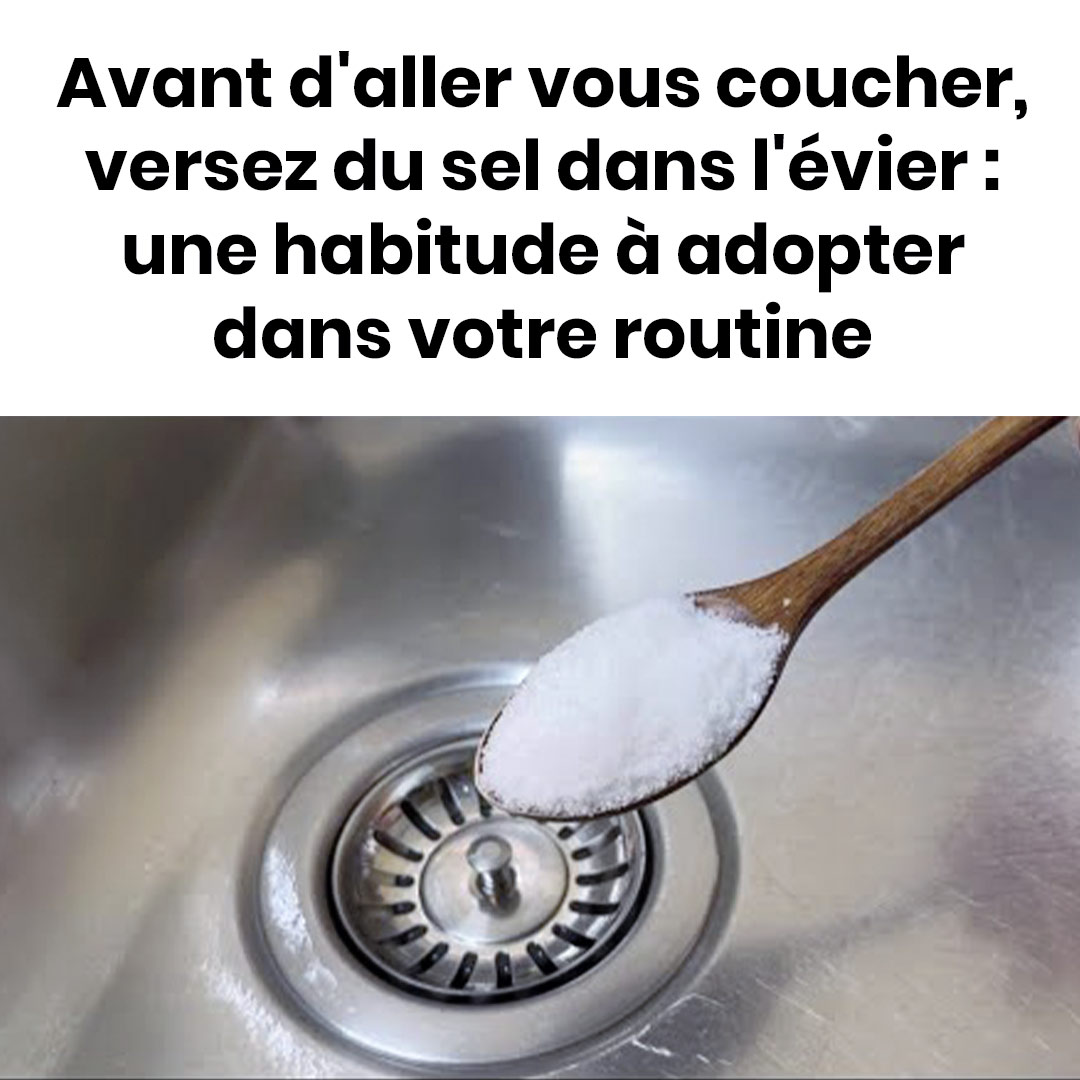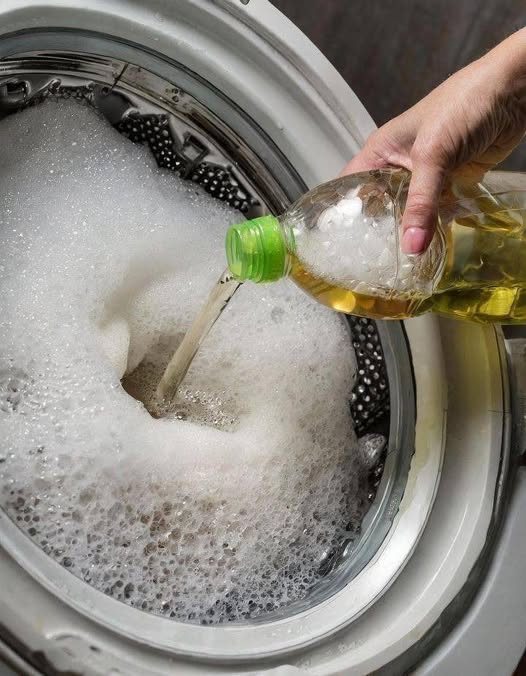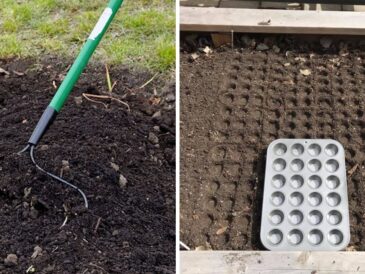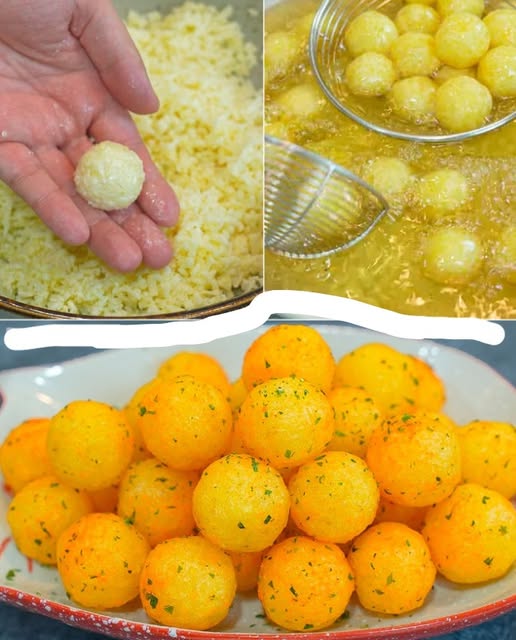Who hasn’t experienced the unpleasant surprise of a clogged sink or basin that won’t drain properly? Clogs often form due to the accumulation of food scraps, soap, or grease. Instead of resorting to harsh chemical products, why not try a natural, affordable, and effective solution?
What if the solution was coarse salt? Yes, this simple ingredient can help you maintain your plumbing and prevent blockages before they become a real issue.
The Idea of Coarse Salt for Always Clean Pipes
Coarse salt, a common household ingredient, has long been used for various household tasks, from seasoning food to cleaning stubborn stains. It turns out that it can also be incredibly effective at keeping your drains clear.
Here’s what you need:
- 2 liters of boiling water
- 5 tablespoons of coarse salt
How to Proceed?
- Boil 2 liters of water until it’s rapidly boiling.
- Add 5 tablespoons of coarse salt and stir well.
- Slowly pour the mixture down the drain or sink once a week.
Why Does This Work?
The salt helps dissolve grease, making it easier to remove, while the hot water carries away any accumulated residue from the walls of the pipes. This simple method can help prevent build-ups that lead to blockages and keep your plumbing functioning smoothly.
An Even More Powerful Alternative
If your pipes are already quite clogged, here’s a more potent variation of the method:
Add White Vinegar:
Method:
- Mix 100 grams of coarse salt with 200 ml of white vinegar and 1 liter of hot water.
- Pour the mixture into the drain and leave it to work for 30 minutes.
- Rinse with boiling water.
The vinegar helps dissolve limescale and grease deposits, while the salt scrubs and cleans the internal walls of the pipes.
Why Adopt This Method?
Safe for Plumbing: Unlike chemical drain cleaners, salt and vinegar won’t harm your pipes. These ingredients are gentle yet effective, making them ideal for regular maintenance. Chemical cleaners, on the other hand, can erode and damage plumbing over time.
Eco-Friendly: This method is entirely eco-friendly. It involves zero pollution for the water and minimizes the use of toxic chemicals in your home. Given the growing environmental concerns surrounding household cleaning products, switching to natural alternatives can reduce your carbon footprint.
Economical: With just a few cents’ worth of ingredients, you can effectively maintain and prevent clogs in your drains. Compared to expensive chemical cleaners, coarse salt and vinegar are budget-friendly, making this a cost-effective solution for households of all sizes.
Avoid Bad Odors: Preventive maintenance with salt and vinegar helps prevent residue from stagnating in the pipes, which is often the cause of unpleasant smells. Keeping your plumbing clear will ensure that foul odors don’t make their way into your kitchen or bathroom.
Prevention: Adopt the Right Habits
While salt and vinegar are great for cleaning and preventing clogs, there are also a few simple habits you can adopt to keep your pipes clean on a day-to-day basis.
- Avoid Pouring Grease and Food Scraps Down the Drain: It’s common to accidentally pour leftover grease or food bits down the sink, but this is one of the leading causes of clogged pipes. Grease can harden inside pipes, and food can get stuck, forming blockages. Always dispose of grease in the trash and use a compost bin for food scraps.
- Install a Small Drain Strainer: A strainer can catch any leftover food particles or debris before they go down the drain. This prevents unnecessary build-up and protects your plumbing from blockages. Strainers are inexpensive and can easily be placed over your drain, making them a simple solution for maintaining clean pipes.
- Rinse Your Drains Regularly with Hot Water: One of the easiest ways to prevent clogs is to rinse your pipes with hot water regularly. This practice helps loosen any accumulated grease or soap scum that may be building up, making it easier for everything to flow smoothly.
Why Salt Works So Well for Drain Maintenance
Natural Abrasive: Coarse salt has a natural abrasive quality that helps scrub the inside of pipes, removing gunk and debris without damaging the material. Unlike chemical cleaners, which can be too harsh, salt offers a gentler solution that still gets the job done.
Dissolving Fatty Substances: One of the major culprits in drain blockages is the accumulation of fats and oils from cooking. Salt is excellent at dissolving these greasy residues, which then allows them to be washed away with hot water. It’s a natural degreaser, making it perfect for use in the kitchen or bathroom.
It’s A Moisture Magnet: Salt is also hygroscopic, which means it attracts moisture. This quality can help pull excess moisture away from the pipes and prevent mold or mildew buildup, which often thrives in damp environments. Keeping your pipes dry and free of excess moisture can also prevent unpleasant odors.
Versatility in Cleaning: Coarse salt can also be used to clean other areas of the house, such as countertops or even your oven. Its natural abrasive quality helps scrub away grime, and it can act as a deodorizer in many spaces. This makes it a valuable addition to any cleaning routine, as it serves multiple purposes beyond just drain maintenance.
Is This Method Better Than Chemical Drain Cleaners?
Chemical drain cleaners may seem like a quick and easy solution when dealing with clogged pipes, but they come with several risks and downsides:
- Harmful Chemicals: Most chemical cleaners are made from harsh chemicals like sodium hydroxide or hydrochloric acid. These chemicals can damage your pipes over time, erode seals, and create leaks. They can also be harmful to the environment, especially if they end up in the water system.
- Health Hazards: The fumes from chemical drain cleaners can irritate your skin, eyes, and respiratory system. Some cleaners are so potent that they can cause burns if they come into contact with your skin.
- Expensive: Chemical drain cleaners can be expensive, and you might have to buy a new bottle every time your pipes clog. In comparison, the cost of salt and vinegar is minimal, and you can use them regularly for maintenance without breaking the bank.
- Long-Term Damage: Over time, using chemical cleaners can lead to long-term damage to your plumbing. The corrosive nature of these products can weaken your pipes, leading to cracks and leaks that may require expensive repairs or replacements.
In contrast, using salt and vinegar is a safe, affordable, and eco-friendly alternative. It doesn’t harm your plumbing, and it’s gentle enough to be used on a regular basis. Furthermore, it’s unlikely to cause any lasting damage to your pipes, unlike harsh chemicals that can degrade materials over time.
Additional Benefits of Salt for Household Use
Salt isn’t just great for maintaining clear pipes — it has a wide range of applications throughout the house. Here are just a few:
- Deodorizing: Salt is known for its ability to absorb odors. If your trash can smells, or if there’s an unpleasant odor in your fridge, placing a small bowl of salt nearby can help absorb the scent. It works similarly in drains, preventing bad smells from lingering.
- Cleaning Grout and Stains: Combine salt with a little water and use it to scrub grout or stubborn stains on countertops. Salt’s abrasive nature can help lift dirt and stains without damaging surfaces.
- Rust Removal: Salt can be used to remove rust from metal objects. Mixing salt with lemon juice creates an effective paste that you can use to scrub rust away.
- Preserving Freshness: Salt can help preserve certain foods. For instance, it’s often used in pickling to prevent spoilage and to enhance flavor. It’s also a natural preservative in homemade sauces and jams.
Conclusion: The Simple Solution for Clear Drains
Pouring salt down the sink is an effective, natural, and economical way to maintain clean and clear plumbing. With just a few simple ingredients — coarse salt, vinegar, and hot water — you can prevent clogs, eliminate bad odors, and ensure the longevity of your pipes without using harmful chemicals.
By adopting a regular maintenance routine and avoiding the buildup of grease and food scraps in your pipes, you can enjoy a smoother and more reliable drainage system in your home. So, the next time you notice your drains beginning to slow down, reach for the salt before considering expensive, harsh alternatives.
Have you ever tried this method to clear your drains? Share your experiences in the comments!





